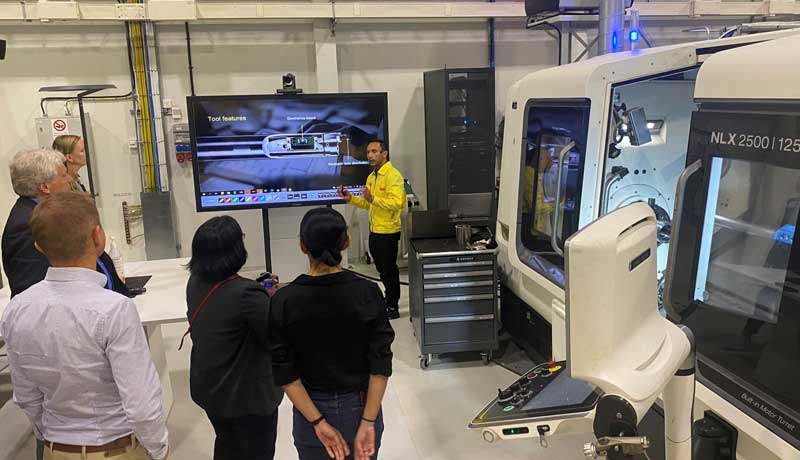Collaborative manufacturing to drive a digitized industry
Sandvik Coromant hosts ISO standards development conference
In June 2022, Sandvik Coromant hosted a four-day ISO standards development meeting at its Sandvik Coromant Center in Sandviken, Sweden. Focusing on how several digital standards, of which Sandvik Coromant helped to form, could enable a collaborative environment across digital machining platforms and unleash the full potential of digital manufacturing, the event welcomed an audience from disciplines across the metal cutting industry.
The event provided an opportunity for manufacturing representatives from across the globe to meet, exchange experiences and get first-hand insight into standards for digital manufacturing and examples of how to implement them. Participants included Sweden’s Scania, SECO Tools, Sandvik, SIS, Chalmers and KTH, TDM Systems, Zoller and Walter Tools from Germany, Boeing Company, Lockheed Martin, STEP Tools, Mastercam and NIST from the US, and ETRI and KRISO from Korea.
Attendees took part in live demonstrations from Sandvik Coromant, Zoller, Mastercam, TDM Systems, CRIBWISE and STEP Tools to showcase how embracing the standards can facilitate connected, collaborative manufacturing processes.
It’s a pertinent time to consider digital standards. According to MarketsAndMarkets, the global digital twin market size was valued at USD 3.1 billion in 2020 and is projected to reach USD 48.2 billion by 2026. That’s an expected annual growth of 58%. The way in which manufacturers design, implement and work with machinery is shifting, with as much activity being hosted in the digital as it is in the physical world. To advise on best practice for approaching new technologies, like digital twins, the ISO committee on industrial data has developed almost 800 standards, covering product lifecycle management for everything from the energy and aerospace industries, to everyday household products.
In particular, the committee has worked to develop several standards that support the use of process data in manufacturing. For several decades, Sandvik Coromant has offered its expertise towards the development, use case testing and evaluation of these standards. They include ISO 23247, ISO 10303 (STEP) and ISO 13399.
ISO 23247 supports the creation of digital twins for several elements involved in component manufacturing including the part being manufactured, engineering requirements (CAD), the manufacturing process (CAM) and the equipment needed, such as the machine tools, cutting tools and part handling devices. Using digital twins in manufacturing systems supports the faster and more efficient creation of better products and more efficient use of the equipment.
ISO 10303-238 (AP238), known as the STEP-NC standard, complements the ISO 6983 M and G code standard with an associative language that connects the CAD design data used to determine the machining requirements for an operation with the CAM process data that solves those requirements. Additionally, ISO 10303-242 (AP242) is an all-encompassing standard for managing 3D design models. Finally, ISO 13399 offers supports exchange of cutting tool data.
“We’ve worked with the ISO committee for many years, always with our customers in mind,” said Helen Blomqvist, President of Sandvik Coromant. “We believe the digital transformation of our industry is for everyone, and our work on these standards is essential for helping us share knowledge and best practices. It’s all about shaping the future of metal cutting together and ISO standards will be critical to support our customers now and in the future.”
Hosting the event was just one part of Sandvik Coromant’s digital agenda. “June’s event facilitated many fruitful discussions,” said Bengt Olsson, Product Information Specialist at Sandvik Coromant. “Our goal is to educate our entire, global network of partners and customers on the importance of these standards, and highlight exactly how they can influence the next generation of manufacturing. They’re more than just guidance, they’re the solution for Industry 4.0.”


